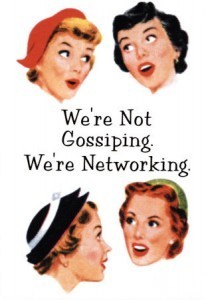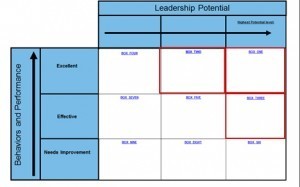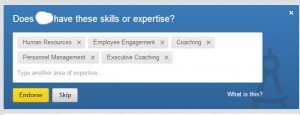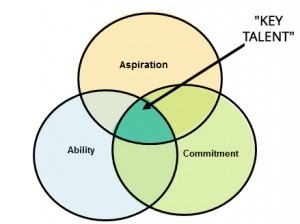Melissa Anzman's Blog, page 9
November 26, 2012
Why Not Getting that Promotion is Better than a Free Pass
 There is nothing more deflating than getting passed over for a promotion. Especially when you know you not only “deserved” it but you are the most qualified person for the job. It happens every day. I could give you a list a mile long of people who were overlooked in favor of someone or something else. Me included. And let’s be real – there is nothing more demotivating than having to show to work the next day. Your faith in the company and even worse, your own performance, is usually shaken to the core. Many people turn nasty, ok, bitter. But getting passed over is almost one of the best things that can happen to your career. And it’s definitely better in helping you further your career, than getting a free pass.
There is nothing more deflating than getting passed over for a promotion. Especially when you know you not only “deserved” it but you are the most qualified person for the job. It happens every day. I could give you a list a mile long of people who were overlooked in favor of someone or something else. Me included. And let’s be real – there is nothing more demotivating than having to show to work the next day. Your faith in the company and even worse, your own performance, is usually shaken to the core. Many people turn nasty, ok, bitter. But getting passed over is almost one of the best things that can happen to your career. And it’s definitely better in helping you further your career, than getting a free pass.
Getting Overlooked is a Clear Sign
It’s an ego-check… but that’s a good thing. Yes your ego is bruised and you are stuck in being bummed out by being overlooked (perhaps again). But it is an important reminder that your self-assessment of your skills, talent and readiness is not aligned with management’s. And guess what – that’s what matters. They are the ones making the decision, so their assessment is what matters. I know, you’re awesome and a superstar. I get that, but think of it like a bridge: you are on one side, their impression of your performance is on the other side. You need to find a way to meet them in the middle, so your performance and their perception, meets at the same point. The lesson: you are either “not all that and a bag of chips” (which I do NOT think is the case), OR… you need to do a better job at promoting your accomplishments and skills. When you are good at something, you tend to forget that not everyone possesses the same talents, so they don’t feel unique to you – you’re just doing your job. But they are skills and you are accomplishing. So you need to find an authentic way to help your management team see just how much you bring to the table.
Your soft skills are not up to par. In other words, you don’t play well in the sandbox. I just rolled my eyes along with you, but this is a real thing – and probably one of the more common reasons people do not get promoted. Delivering results is all well and good, but managers tend to want a peer group that a) they can get along with well and b) feel non-threatening to them and their jobs. I know, it sucks, but it happens often. If you are a top performer from a delivery perspective but continue to be overlooked or passed over, and hear areas of opportunity such as “communication, building relationships, collaborating, not approachable” year-over-year, than this is most likely the culprit for you. This is probably the hardest situation to overcome because people’s perceptions take a LONG time to influence and change, particularly in your favor. The lesson: start working on your “people skills” immediately. Remember that delivery is only one part of the equation and being a part of the team is critical for upward movement. Include your management and peers in helping you find ways to improve your skills in this area, and include them in your journey. (This little nugget will go a long way). Ask for feedback more often, think before you speak, tackle obstacles in a one-on-one environment, and learn the art of persuasion a bit. Simply put, step of the gas a little and let others see you value their input as well.
You have just been provided with a very clear message of your importance and worth within the organization at a specific point in time. I wish I could say that you shouldn’t read into an overlooked promotion, but you should. It is a clear message – regardless if you want to see it as such. There will always be reasons and sometimes excuses, but the bottom line is this: the company does not think you are ready for the next step; they do not think you are worth the extra investment in pay and training right now. So it’s time to take stock and figure out how knowing that, in plain black and white terms, how that makes you feel with your level of commitment and output within the company. It’s time to revisit your balance scale and see if it’s still intact or if there are adjustments needed. More than anything, if you have been on the fence about expanding your wings elsewhere, this is a clear indication that it’s not a bad to get a pulse for other jobs out there. This is a reality check on your long-term viability and/or career progression options at your current company – does it align with your own vision?
Overall, being passed over for a promotion can be very helpful for your long-term career path. It will show you some significant blind spots in your performance, the perception others have about you, and your worth to an organization. None of these things are signs that you should quit your job, but it does provide you with some significant feedback and knowledge to help guide your next steps. Do you need more experience in a certain area? Are you lacking managing-up skills? Is there a piece of the puzzle you have overlooked? Are you bringing extensive or mediocre value in your everyday actions? All things you need to ponder and take seriously when you are passed over, and help jump-start your next steps to move your career further.

November 22, 2012
From the Archive: Have You Thanked Your Problems Yet
 (Editor’s Note: This was originally posted in June 2012 and was subsequently picked up a few other places, but I thought it was fitting as a reminder for Thanksgiving here in the U.S.).
(Editor’s Note: This was originally posted in June 2012 and was subsequently picked up a few other places, but I thought it was fitting as a reminder for Thanksgiving here in the U.S.).
Let’s pause and look around us – and be grateful for everything that we do have. It’s so easy to get caught up in our own world: things that are driving us crazy, holding us back, or not turning out as we planned. But have you recently looked outside of your sphere (and your current woes), to reflect on what you have?
I’m in the business of turning negatives, challenges, questions, into amazing positives. Don’t have a job that brings in six-figures, I’ll help you land that. Not sure if you should stay in grad school or take a promotion at work, no problem. Can’t seem to break into the corporate world with your current set of resume materials, easy breezy fix. I listen to people’s problems and help them on their path to find a solution – and I love every moment. But are our problems really that bad?
After watching the first half of the Secret Millionaire, I was touched, inspired, and questioning my own world perspective. A little disclaimer – I love this show; I love how it highlights how different people live throughout the United States, that it attempts to show and share the reality of life for so many people that are not represented in media, that it reminds us of the impact that volunteering (and yes, money), can have to so many people. But as I was watching kids being taught how to landscape a cemetery so they can add that skill to their resume, I paused the show and literally stepped away from my TV.
When was the last time that you stepped out of your current life woes and reflected on the things you do have? I know that it has been too long when I was worrying this morning about how to bring in new clients while sitting at Starbucks with my venti iced coffee in my hand and my laptop computer on the table (not to mention all of the other gadgets in my purse). It’s not about things – but how amazing is it, that these issues are the ones that I’m lucky enough to worry about. I have a beautiful apartment, I don’t have to worry about my next meal, clothes, things galore, and so much more.
Our own life decisions and challenges are important – it’s not about how you compare to people who may be less or more fortunate. But at what point do we give our personal crises a break and realize that we are very lucky to be having those types of problems in the first place? When you put your decisions into the perspective of others, the problem doesn’t seem so big or overwhelming.
So I urge all of you to take a moment and reflect on how lucky you are to be struggling YOUR struggle. Even as difficult, challenging or overwhelming it may seem, there are so many others who are struggling for things/decisions/options that you have either overcome or accomplished. Remember that: you have accomplished! Each time you pay your rent check, buy groceries, get in your car, call someone on your cell phone – your hard work, dedication, determination, and perhaps luck, have helped you do that. Be grateful for what you have and figure out how to pay it forward.
And along those lines, if your current struggle happens to be the need for a new resume, or help with your life direction, coaching, or any other decision – I want to help you. Email me or comment below and let me know what your current struggle is and how I can help. And I will do my best to help you – easy as that.

November 19, 2012
Holiday Networking for Introverts
 If last week was any indication, here at Loosen Your White Collar, we are gearing up for the holidays. Which is always a mixed blessing – having some “down time” to spend with family and friends (awesome), but also having to be around new faces and “network” at all of these events, makes me shudder. Oh the joys of being an introvert. Susan Cain recently published a book titled Quiet on the value introverts add to the workplace to shed some light on innate differences between introverts and extroverts – I think this TED talk captures it nicely, if you want a quicker review. I know that there are several extroverts reading this, so the tips may not be directly applicable – but now you’ll know how to support the introverts you meet at your next conference or dinner.
If last week was any indication, here at Loosen Your White Collar, we are gearing up for the holidays. Which is always a mixed blessing – having some “down time” to spend with family and friends (awesome), but also having to be around new faces and “network” at all of these events, makes me shudder. Oh the joys of being an introvert. Susan Cain recently published a book titled Quiet on the value introverts add to the workplace to shed some light on innate differences between introverts and extroverts – I think this TED talk captures it nicely, if you want a quicker review. I know that there are several extroverts reading this, so the tips may not be directly applicable – but now you’ll know how to support the introverts you meet at your next conference or dinner.
That being said, holidays are ripe for intermingling with old and new friends – yes my friends, this is networking! Most of us think that networking only occurs at big conferences or “mixing” events, but networking happens everywhere. It is about creating and building relationships with other people. It’s not about getting something in return from meeting someone or pitching the heck out of yourself to further your career. It’s about expanding “your people” to learn and grow. And isn’t that what happens every time you attend a holiday event? You are exposed to new people and get to create connections and expand your network. (And thanks to a LYWC reader for giving me inspiration for this post!)
Networking Over Turkey for Introverts
One of the most helpful tricks that I learned about “networking” was that you should obliterate the word networking from your vocabulary. To me, it was an intimidating word – having to be “on,” always having something fabulous to say, proving my worth with each sentence, and representing my boss/company/position at each turn. Ugh, the pressure. But how do you break through all of that nonsense to make long-lasting connections? Start at your holiday dinner.
Create your own purpose for every “event.” When you go to your next holiday or big conference, create a small goal or outcome that you want to achieve from the meet-up. For my turkey dinner this year, I have set a goal to talk to a specific person who is attending. We haven’t spoken much in the past and I look forward to getting to know them better. We are both introverts, so it will take extra effort, but that is my goal for the event. When I attend work-related dinners or conferences, I usually set a goal around a knowledge point or skill I want to learn more about. For instance, I am interested in learning more about compliance for video interviewing – so I need to seek out other people at the event who know about this topic, to chat with them. Sounds small, but it helps keep me focused on learning instead of the dreaded networking.
Sit next to someone, anyone, really. The natural instinct for an introvert is to sit in the back, or in the aisle by yourself. Find the space where no one is likely to sit down, and go there. So fight against your instincts and find a person who looks open to chatting. Luckily for you at holiday meals, there will usually be someone on each side of you – perfect! You don’t have to do the choosing, but try to make the first effort by simply saying, “hello,” when you take your seat. You will be amazed at what a conversation started that one little word is.
Treat your conversations like you’re talking to your friends. When I’m around my friends, I have no issue speaking up, starting conversations or asking questions. I may or may not be the most chatty in the bunch (depending upon who is around me), but I focus on one-on-one interactions and conversations. And when you’re “networking” that is the easiest way to get out of your shell. When your approach is friendly, you don’t stall or search for conversation starters. You do not have to talk about work or a product or so on. Just talk about what you would with your friend – the weather, something you watched on TV last night, a book you’re reading, a news topic. However you would lead “small talk” on the phone with a friend, is a perfect way to lead with a new acquaintance.
Best Networking Nugget of Advice
From the movie, We Bought A Zoo:
“Sometimes all you need is twenty seconds of insane courage. Twenty seconds of embarrassing bravery. And I promise you, something great will come of it.”

November 15, 2012
Bribe Your Boss? Gift Giving Rules for the Holidays (Part 3)
 Do I get my boss a gift? I have run across this question more than any other when it comes to holiday-time. The quick answer is that it varies based on the environment you are in and if you are a gift-giver or not – and the “real answer” is YES.
Do I get my boss a gift? I have run across this question more than any other when it comes to holiday-time. The quick answer is that it varies based on the environment you are in and if you are a gift-giver or not – and the “real answer” is YES.
Gifting at Work
I would recommend erring on the safe side and having a gift ready to go, regardless of the environment you are in. Then it is up to you if you deliver it or not and you are not left empty-handed if your boss steps up to the plate. With that in mind, here is some guidance, learned the hard way, of course.
Your boss should be getting you a little something for the holidays as a thank you for working so hard this year, gift. If your boss manages 20 people, don’t expect anything huge, just a small token. I have personally received gifts as small as candy to as fabulous as crystal glasses, and everything in between.
Ask people who have been at the company for some time, that you trust, what the gift-giving culture is. In some places, giving your boss a gift is taboo and frowned upon (yep, I stepped into that puddle before), and it’s important to know that before the gifting begins. That doesn’t mean that you shouldn’t gift, particularly if you want to, but how you deliver and present the gift will be vastly different. You should be more discreet about it and not tell the world what you are up to.
Whether you decide to get your boss a gift or not, know that you will be judged for that either way. This is a lose-lose situation. Either your boss will be miffed that you didn’t show them some kind of acknowledgement, or your coworkers will be annoyed. So ultimately, the choice of which “losing situation” is better, is one you have to personally make.
There is a line that I would recommend drawing, as I have embarrassingly crossed it a few times. If you work in the “normal world,” excluding finance and the like, spending $100 on your boss’ gift is well beyond extravagant. Depending upon your level in the organization, you should aim to spend no more than $50 (and that’s high) and the gift should be personable and work-appropriate.
Stay away from the following, regardless: clothing or any kind (pajamas, shoes, slippers, etc.); romantic-gifts; blenders and the like; items that are banned from your workplace (knives, guns, etc.); essentially, anything that would not give in the presence of your grandma. Booze is a tricky one – I personally am not a fan of it, but if you know that your boss loves a particular wine or spirit, then it would be appropriate. A six-pack of beer, not appropriate.
And if you are a boss of any kind, suck it up and get your team gifts – even if it is a small token of thanks. THANK THEM.
What’s the best gift you’ve gotten or given for your boss?

November 14, 2012
Office Holiday Parties – Shake Your Tail-feather? (Part 2)
 Depending upon where you work, you may or may not have some kind of year-end office holiday party celebration. And they can range from upscale to a drinking fest, and everything in between. Planning these things are an HR nightmare – not only do we hate that we become “party planners” for some odd reason, but all of the potential pitfalls and liability possibilities is enough to drive us to drink (at home, of course). HR aside, navigating your office holiday party, can greatly impact your career.
Depending upon where you work, you may or may not have some kind of year-end office holiday party celebration. And they can range from upscale to a drinking fest, and everything in between. Planning these things are an HR nightmare – not only do we hate that we become “party planners” for some odd reason, but all of the potential pitfalls and liability possibilities is enough to drive us to drink (at home, of course). HR aside, navigating your office holiday party, can greatly impact your career.
Party Like a Rockstar?
You absolutely should attend. And coming from me, this is BIG advice. I am not a fan of office parties or celebrating with people I work with every day, but showing up for an hour to your holiday party is a good idea. Let me be clear – it’s a must, especially if you work at a smaller company. Your boss will be looking for you, the owner and organizer will take it personally, and you can get face-time with people you don’t usually come into contact with. Just suck it up and go.
Have a two drink maximum. Period. I don’t care who you are, you don’t have to get drunk at your office party just because there is free booze. You are working, getting paid, which means you can spend money on alcohol and celebrate with your friends any time you want. This is NOT the time to get sloshed. Haven’t you heard any/all of the ridiculous office drunk stories? Why do you think this is still a good idea? Not to mention the potential liability that your company has should you drink too much and then do something stupid. You don’t want to be that person. You don’t want to undo years of hard work with one night of “relaxing.” Grow up.
If you bring a plus one, make sure it is someone you are serious about. You don’t have to be engaged or married serious, but people will continually ask you about that person going forward. So unless you want to explain a hundred times over why you only had one date with that person, remember the long-term impact of bringing a friend along. Short-term “suffering” on your own versus having to field questions, comments, suggestions, and more for months to come.
Don’t think that the relaxed environment means that you can gossip freely. I can’t even tell you how many times a feud has started because they “overheard” something being said at the holiday party. Save it for a phone call or lunch the next week. Or even better, stop being so judgmental and mean and stop gossiping (and get to work!).
Dress appropriately. Pay attention to the invite information – if it’s formal, casual, business-casual and so on. If the party is right after work or in the middle of the day, most likely the same attire for the office is sufficient. Maybe step it up a bit, but for the love of Nancy, do not go overboard. What’s overboard? Super-short or “sexy” dresses, skirts, and tops. Too much overwhelming sparkle. Hooker heels, and so on.
Step away from your coworker/boss/someone’s husband/wife. Obvious, but it happens all of the time, probably thanks to the alcohol. Regardless, the office party is not the place to hook-up. Do you remember this commercial by Olympus? Try not to create your own commercial.
Be the rational human being you are the other 364 days a year.
Do you have an awesome office holiday story to share? I can’t wait to hear if your experiences rival mine!
Ahead…
Part 3: Gifts for your Boss

November 12, 2012
Holiday’s at Work… Decorations Abound (Part 1)
 It’s already mid-November. Where the heck did the year go? But alas, the holidays are approaching – unless you are at any retail store where the holidays have firmly arrived. Anyway… Navigating the muddy water of work-appropriate holiday celebrations is always a struggle. I’ll be highlighting three different holiday-related situations this week: decorations, holiday parties, and work gifts.
It’s already mid-November. Where the heck did the year go? But alas, the holidays are approaching – unless you are at any retail store where the holidays have firmly arrived. Anyway… Navigating the muddy water of work-appropriate holiday celebrations is always a struggle. I’ll be highlighting three different holiday-related situations this week: decorations, holiday parties, and work gifts.
I will preface my guidance below with the following: a) I do not celebrate the holidays that the “majority” of the population does. So this is a personal topic to me. b) Being inclusive at work is not optional. Religion is a protected class.
Tinsel, Bells, and Merry Everywhere
My biases aside, creating a comfortable and yet festive environment at work, can be tricky. Not everyone celebrates the same holidays as you do. And even those who do, can celebrate them in a different way. I know that it seems obvious, but you’d be surprised by how many people forget that Christmas is not a secular holiday for everyone. If you were born in the 1990s, this is probably not as glaring of an issue to you as you know the “Happy Holidays” phrase and “Winter Break,” but for the rest of us, it’s a big habit we all need to break.
And some personal insight here… I grew up never feeling “different” for not celebrating Christmas because I had many friends around me who celebrated other holidays as well. However, my first holiday season in the working world was a SHOCK to me. And I was working in New York City. The office was full-out decorated with trees, tinsel, poinsettias, ornaments, lights, and so on. And all anyone could talk about was “Merry Christmas” and their family gatherings, and so on. I didn’t feel welcome – not because my holiday’s symbol wasn’t present (more about that below), but because it was so in your face.
So what does one do?
First and foremost, when celebrating at work it is important to make it more about the spirit than any one holiday. For decorating, I would keep it classy and minimal – not void, but not the only thing you see. Draw the line at tinsel. Use colors outside of just red and green. Wreaths tend to get to be a bit too much, and Santa Clauses are a huge no-no (they’re kinda tacky at work too). One very important thing to remember: do not force your decorations on others. I don’t want my cube filled with holly or merry with tinsel. If you want that in your space, cool (well, as long as it’s not offensive and over-the-top inappropriate). But please leave my space alone.
Be cognizant of how you close conversations. I think it’s almost second nature to say, “Merry Christmas” for many – and honestly, that doesn’t offend me personally. HOWEVER, I know several people who always snap back to the person with venom when they are addressed in that manner. “I don’t celebrate Christmas.” Um, awkward. Anyway, do your best to move to a happy holidays, or best wishes. More importantly, pay attention to how you close your emails. Remove anything non-business related (you are still at work people!). Just skip changing your signature to include “Season’s Greetings,” “Merry Christmas,” and so on. You never know who is on the other end of your emails and what their personal opinions/religions are. Remove any potential to offend.
Representing a few of the major the holiday celebrations in your lobby is not a bad idea. But be sure that they are displayed correctly by asking for guidance from someone who actually celebrates each holiday (oh the stories I can tell and the number of employee complaints I have had to listen to about this). In addition, putting in a half-ass effort just to have the holiday “represented,” will lose you points instead of helping your cause. Be inclusive – ask for others to provide guidance and assistance to ensure you get it right.
Ahead…
Part 2: Office Party Woes
Part 3: Gift Giving for Your Boss

November 8, 2012
What is Talent Management?
 If you are a manager, you have probably started to hear grumblings about “talent management” approaching as people start planning for the New Year. And then rolling your eyes because you have no idea what HR actually means when they want to manage the ubiquitous “talent” in your organization, other than creating more work for you. But Talent Management, when done properly, is a critical tool for managers, employees and HR to help keep people on-track and retain critical talent within the organization.
If you are a manager, you have probably started to hear grumblings about “talent management” approaching as people start planning for the New Year. And then rolling your eyes because you have no idea what HR actually means when they want to manage the ubiquitous “talent” in your organization, other than creating more work for you. But Talent Management, when done properly, is a critical tool for managers, employees and HR to help keep people on-track and retain critical talent within the organization.
The Definition of Talent Management
Talent Management is a process where you asses employees within your organization and looking at specific factors that expand beyond their actual annual performance/deliverables. You take note of their potential, leadership capabilities, ambition, and culture fit. And then create a focused plan to develop the employee into their future role.

The most popular talent management template is called the “9-Box Tool.” The premise of the tool is universal, but the definitions inside each performance box vary based on company. On one side it measure Leadership Potential and the other side it measures Behaviors and Performance.
Leadership Potential is where the softer skills are presented, not necessarily tangible deliverables, but instead, how the employee works within a team, their role in their department, are they seen as someone who can make difficult decisions or lead a project, and most importantly, their long-term commitment to the organization. Each employee’s leadership potential is determined not only by shown potential capabilities, but also their ability, aspiration and commitment to the company. Where you fall on the below graph is what ultimately determines the Leadership Potential side of the equation.
Behaviors and Performance are easier to define – are they a top performer, do they deliver their goals, are they someone you can depend on to propel the organization further?
Managers contemplate “box placement” for each employee based on the company’s definition of where the employee crosses on the Leadership and Behaviors path. For example, if you have significant leadership potential and are delivering at a high rate but not beyond exceptional, than you would be placed in Box 3. If you are an excellent performer but are comfortable in your current position without any people management desires, you would be placed in Box 4. And so on… Companies tend to focus and want to develop employees who land in boxes 1, 2 and 3 – it’s their biggest bang for their buck. These are the employees often referred to as Key Talent or High-Potentials.
Why Should You Care
It’s important to know that your manager is evaluating in this manner as it will greatly influence your long-term options and growth within the company. In addition, understanding what type of performance is considered “worth developing” can help you adjust your own behaviors to further your career. For example, here is a definition I’ve seen from the “aspiration” circle for Leadership Potential:
“The extent to which an employee wants or desires: 1) prestige and recognition in the organization; 2) financial rewards; 3) overall job satisfaction and impact; 4) increased responsibility and accountability that may limit work/life flexibility.”
In other words at this company, your aspiration shows itself by having many people recognize your accomplishments, asking for increased compensation and promotions (being seen as “money motivated”), striving to be happy at work and making a difference, and never focusing or asking for more of a work/life balance. Gasp. If you are not actively seeking out opportunities to further your career path, you will often be overlooked based on the aspiration dimension.
In the “commitment” circle for Leadership Potential, it is different for each company, but here is a sample definition:
“Commitment consists of four elements:
Emotional Commitment: The extent to which employees value, enjoy, and believe in their organization. Internalizes the success of the business and takes a stand for the organization.
Intent to Stay: Employee desire to stay with the organization and being open to company relocation dependent upon company need.
Rational Commitment: The extent to which employees believe that staying with the organization is in their self-interest.
Discretionary Effort: Employee willingness to go “above and beyond” the call of duty.”
Being relocate-able can be a huge factor, especially when you are in between two boxes. In addition, your intent to stay and be a part of the organization’s future is critical. And this is something that is completely in your realm to influence by reiterating your long-term desires to your manager whenever the opportunity arises, particularly during goal-setting.
Essentially, while as an employee you will not be participating in the actual Talent Management process, you will be spoken about and evaluated behind closed doors. Knowing what they are looking for and how they will be determining your career progression and investment, puts the power back into your hands and provides you with the opportunity to create your own influence within the discussion.
Talent Management also can explain many of those promotions, rotations and opportunities provided to colleagues around you. Something to think about…
Have you participated in Talent Management discussions? I’d love to hear about your experience and if you used the 9-Box tool.

November 5, 2012
Money and Your Job
 Yes, I know – you want to follow your passion, find a better work/life balance, do something meaningful at work, and bring in well over six figures for doing it. But for many people, it’s just a dream. A someday. A wish for what they want but not “realistic” to go after.
Yes, I know – you want to follow your passion, find a better work/life balance, do something meaningful at work, and bring in well over six figures for doing it. But for many people, it’s just a dream. A someday. A wish for what they want but not “realistic” to go after.
Let’s not kid ourselves – work is also an important income source. You need enough money to pay the bills, cover living expenses, live a certain lifestyle.
How Money Impacts Your Career
The most unhappy employees I come across all say that they feel stuck in a job because the pay is so good. They have RESPONSIBILITIES to uphold. Their family needs a certain level of income to be content. Making a certain amount of money becomes the noose around their neck. They forsake all else to bring in $XX income. Their career decisions are made by money – not by their own motivating factors.
When you go through the recruiting process, money is one of the first questions that is asked, and the last item that is negotiated. I need to make $XX in order to accept that job (or perhaps the words in your head are more like – “to accept the misery that I will put up with for the next five years of my life”). But this is the obvious way money impacts your career.
What about when you’re in debt? From personal experience (which I hope to never revisit), when you are in debt it seems as if all of your decisions are based out of fear. Trying to stay on top of all of the payments you owe, having “emergency” money just in case, and being paranoid that everyone knows how quickly you are going under, greatly impacts your career. Being nervous about losing your current position if someone should find out that you are in the hunt for something better; being embarrassed about a new employer doing a background check and seeing your mounting debt; the time and energy it takes to just stay afloat is all-encompassing.
So you don’t make any career decisions. You stay where you are and continue to spiral downward, or relax into your work misery. And all of this is OK – but it’s still a career decision.
Not everyone can take big risks, in fact I’d probably frown upon crazy career risk taking. But understanding that there is a spectrum of acceptable risks is usually overlooked. You have options, but remember that they are options. No one is going to come in and bless you with permission to make more money, ask for a raise/promotion, get a side hustle, or find a better career match.
Know that there are other paths out there for you. And that by restricting your career decisions solely around money, will keep you trapped in the cycle of work = paying bills.
And to ease your paranoias:
If you are smart about how you do your job search, then you will not be fired for seeking out a new position. In fact, getting fired for this reason is very… rare. Particularly at larger companies. I would only be super-cautious about this if you work at a small company (300 employees or less). In these instances, the owner tends to take employees action’s personally, and can be more emotional. There’s an entire chapter in How to Land a Job about this – but essentially, clean out your social media accounts and do not let the cat out of the bag to anyone at your current company. Anyone, capice?
Recruiters will do a background check, but a separate credit check is required to get your credit history. They have to let you know about this before they run it. It is very common these days, but it is not usually used to dig deep into how much money you owe, but instead, to show patterns and see any potential red flags. Honestly, I’ve been wracking my brain to think of a time when a credit history prevented an offer, and I cannot think of one. Especially in today’s economy where everyone is hurting, I wouldn’t let the fear of someone else knowing your financial situation prevent you from seeking out something new.
As for the time and energy – there are so many small things that you can do to increase your earning potential and income. Knowing that you have options and making strides to work towards seeking them out, will help bring your focus from money, back to your career.
And one last word: There will always be a sense of needing to work to pay the bills. In fact, it’s something that even all of the entrepreneurs I know think about constantly. But it’s important to remember that you career and how much you make, do not always need to be tied. YOU decide your career path and choices – not how much you make. Oh, and please start tracking your Net Worth – you’ll be amazed and surprised to see your progress over time.
Welcome to Loosen Your White Collar! I'm Melissa and I help people fall in love with their jobs. Subscribe to my RSS Feed to have my posts delivered to you inbox and my newsletter for specials.

November 1, 2012
Practical Tactical Thursday – Leveraging the “New” LinkedIn
 LinkedIn is currently going through a large-scale update with the look, feel and functionality of the site – to help YOU interact with your network more effectively. Strangely enough, they are taking a stealth approach to these updates, similar to how Facebook rolls out changes, by not announcing every change as it happens and working out the kinks before the new look and feel is launched. So what does this mean for you? That you are no longer using all of the bells and whistles that LinkedIn has to offer.
LinkedIn is currently going through a large-scale update with the look, feel and functionality of the site – to help YOU interact with your network more effectively. Strangely enough, they are taking a stealth approach to these updates, similar to how Facebook rolls out changes, by not announcing every change as it happens and working out the kinks before the new look and feel is launched. So what does this mean for you? That you are no longer using all of the bells and whistles that LinkedIn has to offer.
What You Need to Know About the “New” LinkedIn
Endorsements
One of the most important changes that will greatly impact the usefulness of your profile, is the Endorsement feature. I have received several questions about Endorsements, so hopefully this will set the record straight.
 Endorsements are different than recommendations (repeat that sentence). Essentially, the skills that you have entered into the Skills section of your profile or keywords that you have used throughout your profile, popup in a blue box when your connections view your profile. LinkedIn’s help button explains it like this: What skills and expertise does this person have? You can endorse your connections to give them recognition.
Endorsements are different than recommendations (repeat that sentence). Essentially, the skills that you have entered into the Skills section of your profile or keywords that you have used throughout your profile, popup in a blue box when your connections view your profile. LinkedIn’s help button explains it like this: What skills and expertise does this person have? You can endorse your connections to give them recognition.
The “recognition” that the person gets from having you endorse their skills essentially says this to employers: “ I’ve seen that person using those skills before,” validating their experience.
This is fine and good, but why was this feature added and why do you need to leverage it better? Most people do not have explanatory job titles or extensive information included in their profile. And sometimes, your actual skill-set varies or expands beyond your job title experience. So this feature provides you a place to showcase additional skills you have without trying to squeeze in “Web Design” for an Accounting job. It also provides another way for recruiters to find you! Many times recruiters or hiring managers hop on LinkedIn and perform a keyword search for potential candidates, and your profile will come up if you have those specific skills entered on your profile, with endorsements adding more credibility and validation to your experience.
New Profile Design

LinkedIn has slowly been beta testing and rolling out a new design for you profile page. I was asked to change over and for some reason clicked “no thanks” or I’d tell you to go over to my page to check it out (I have no idea why I did that!). Anyway, it is very different looking. It arranges your profile more like an optimized webpage – there are more graphics (see “connection” diagram to the left), less text; your connections are positioned in a different way; and you have to showcase who you are with less.
Now is the time to update your head-shot before it becomes magnified on your profile and on the “connections in common” and “other people viewed” places on the page – your face will be out there. And with less space to go into depth on your new landing page, your copy (the words you use on your profile), needs to be optimized as well in order to be found and support your experience when going through the interview process.
And a Fun Giveaway…
I have exactly 500 connections on LinkedIn. And let me tell you something – I have met, spoken to, interacted it, or read/follow each and every one of them. And with one more person, I get the little plus sign added to my connections. So I thought it would be fun (and entertaining) to throw a little giveaway/contest out there. The person who requests to become a connection, will receive the Complete Package for How to Land a Job: Secrets of an HR Insider (ebook, resume samples, templates, your resume critiqued, and a coaching discount coupon).
Welcome to Loosen Your White Collar! I'm Melissa and I help people fall in love with their jobs. Subscribe to my RSS Feed to have my posts delivered to you inbox and my newsletter for specials.

October 29, 2012
The Best Time to Search for Jobs – Recruiting Cycle
If you are not in Human Resources, it is easy to overlook the recruiting “cycle.” There simply are better times to be searching for a job than others, and your timing will greatly impact the time it takes for you to search, apply and interview at various companies. And while every company is different, the recruiting cycle across the U.S. tends to bob and weave at the same time.
Ever Wonder Why There Are Suddenly No Jobs Available?
As a job hunter (become a job-lander already!), there will be weeks or months when you see hundreds of jobs that could be a great match for you and then suddenly, the well seems to dry out. You have applied to every job out there and nothing new seems to be available – at least not in droves like they had in the previous month. Most likely it is because you have hit a dip in the recruiting cycle. I created a fun infographic to help you plan your job-landing activities. Feel free to share it (text version below)!
Text version of Infographic:
Introduction: Job openings in the U.S. tend to follow the same recruiting life cycle. There are months when you have a better opportunity to landing a job than others, simply due to the number of companies with open positions.
January: The worst month to try and find a new job. A new fiscal year is beginning for many people, as well as the performance review year. New goals and projects are being established and employees are coming back from a long break. If the company pays out bonuses, employees will wait around until it is paid out before leaving their current position. Managers do not have a lot of time to dedicate to the interview process… yet.
February: Start dialing your contacts and getting your feelers out there. There will not be a ton of openings in February as people are still waiting for their bonuses and goals to be finalized, but now is the time to start reconnecting with your contacts and prospects.
March: Game on! You will start seeing a significant increase in job openings in mid- to late-March as employees start seeking new opportunities post-bonus payout and hiring managers realize how much effort their new goals will take to accomplish. Q1 is coming to a close and budgets will be ready to take on new employees. You should already be in the hunt when these positions open up.
April: This is your shining month. April through May will be the best months to find the most jobs. People realize the opportunity in other companies and start comparing their compensation packages. April is key because you are getting in before new graduates hit the market officially, and employees will be eager to welcome in additional help.
May: Especially for new grads, this is the season for starting new jobs. Hiring managers are typically rushing to fill these positions before summer as scheduling gets significantly more difficult beginning in June. School is letting out so working parents are reevaluating their priorities which could lead to open positions and recruiters seeking out talent.
June: During June, you will see the number of job postings start to dwindle as the summer months begin. And positions that are posted, tend to be unexpected turnover or expansion positions. Hiring managers and recruiters want to fill these as soon as possible, so great follow-up in June can increase your chances of being noticed.
July & August: There is no easy way to say this, but July and August are some of the slowest months for new job postings. Why? Hiring managers are slowing down in work production and using their vacation time away from the office. Employees are taking advantage of the slower pace and the opportunity to take time off, before making their next career move. Note: If you are going through the interview process during these months, it will be extremely SLOW.
September: You will see more new positions posted in September, but they will most likely be higher level positions. This is an easy time for families to relocate or change jobs to coincide with the beginning of the school year, and hiring managers are under pressure to use their budget dollars before they lose them. But act fast!
October: The clock is ticking! This is the last month of the year that you will a significant number of open positions across industries. Trying to ramp up before the new year and also fill any positions that are difficult to recruit for, is critical during this month. Hiring managers want to cross this off their goal lists and have everything set for the upcoming year. As a new employee, you will get a “free quarter” in Q4 to get up to speed before needing to deliver above capacity.
November & December: It is extremely difficult for companies to recruit during these months with so many holidays, vacations and year-end madness. You will not see many new positions posted unless they are critical, as most employees will decide to wait out until their next bonus payout at this point. Continue to keep in touch with your contacts and use this season to network at all of the holiday events so you are ready to go at the beginning of the next year.
Welcome to Loosen Your White Collar! I'm Melissa and I help people fall in love with their jobs. Subscribe to my RSS Feed to have my posts delivered to you inbox and my newsletter for specials.






